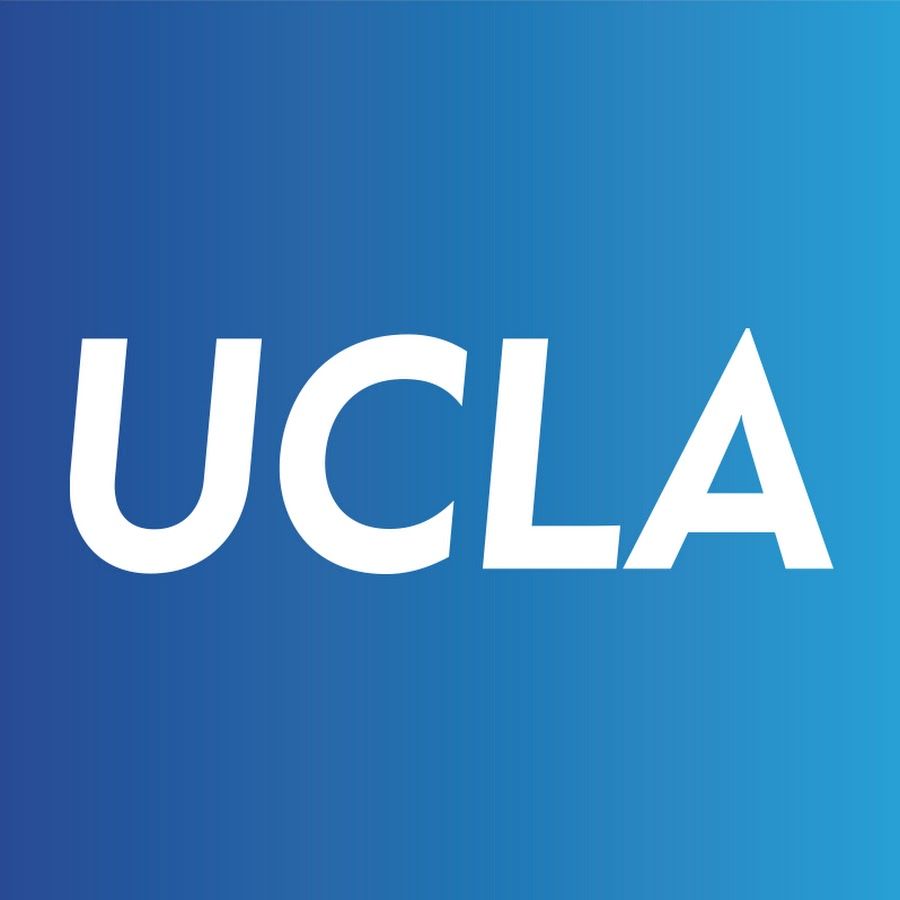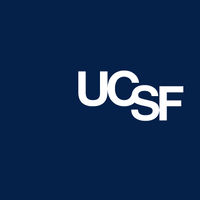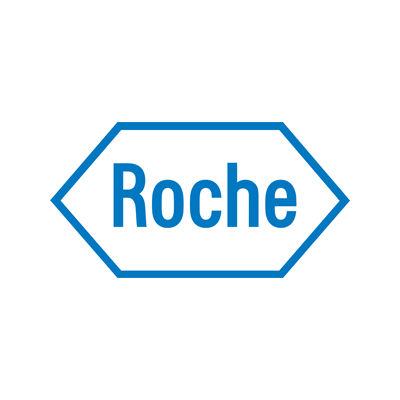Request Demo
Last update 09 Sep 2025

University of California, Los Angeles
Last update 09 Sep 2025
Overview
Tags
Other Diseases
Neoplasms
Nervous System Diseases
Small molecule drug
Diagnostic radiopharmaceuticals
Radionuclide Drug Conjugates (RDC)
Disease domain score
A glimpse into the focused therapeutic areas
No Data
Technology Platform
Most used technologies in drug development
No Data
Targets
Most frequently developed targets
No Data
| Top 5 Drug Type | Count |
|---|---|
| Small molecule drug | 29 |
| AAV based gene therapy | 5 |
| Prophylactic vaccine | 4 |
| Therapeutic vaccine | 3 |
| Monoclonal antibody | 3 |
Related
61
Drugs associated with University of California, Los AngelesTarget |
Mechanism PSMA inhibitors |
Active Org. |
Originator Org. |
Active Indication |
Inactive Indication |
Drug Highest PhaseApproved |
First Approval Ctry. / Loc. United States |
First Approval Date01 Dec 2020 |
Target |
Mechanism Opioid receptors antagonists |
Active Org. |
Originator Org. |
Active Indication |
Inactive Indication |
Drug Highest PhaseApproved |
First Approval Ctry. / Loc. United States |
First Approval Date13 Apr 2006 |
Target |
Mechanism CD20 inhibitors [+3] |
Active Org. |
Originator Org. |
Active Indication |
Inactive Indication |
Drug Highest PhaseApproved |
First Approval Ctry. / Loc. United States |
First Approval Date26 Nov 1997 |
1,628
Clinical Trials associated with University of California, Los AngelesNCT03883360
Effects of Cannabidiol on Psychiatric Symptoms, Cognition, and Cannabis Consumption in Cannabis Users With Recent-Onset Psychosis
A large proportion of people with a schizophrenia-spectrum disorder, especially in the early stages of the disease, regularly consume cannabis. Cannabis use is associated with poor prognostic outcome; however, there are no effective interventions targeted at reducing cannabis use or its deleterious effects in this population. The present trial is designed to test whether cannabidiol (CBD), a cannabinoid whose effects are in many ways antagonistic to those of Δ9-tetrahydrocannabinol (THC), can reduce psychiatric symptoms, cognitive deficits, and cannabis use in people with recent-onset psychosis who regularly consume cannabis.
Start Date01 Jan 2050 |
Sponsor / Collaborator |
NCT07022574
Evaluating the Impact of Autoimmune Protocol Diet on Proteinuria in Patients With IgA Nephropathy
This study at UCLA Center for Health Sciences is testing whether the Autoimmune Protocol (AIP) diet can lower protein levels in the urine of people with IgA Nephropathy (IgAN), a common kidney disease that can lead to kidney failure. The AIP diet avoids foods that may cause inflammation (like dairy, grains, and sugar) for 8 weeks, then gradually reintroduces them over 4 months. We're enrolling 30 adults aged 18-65 with IgAN and protein in their urine to try this diet for 6 months. Participants will track their urine protein daily at home, keep a food log, and have monthly lab checkups, with support from a diet expert. The main goal is to see if the diet reduces urine protein by 20% or more, which could slow disease progression and reduce the need for treatments like dialysis. This exploratory study aims to find out if diet changes can help manage IgAN.
Start Date01 Feb 2026 |
Sponsor / Collaborator |
NCT04846517
Multilocus Repetitive Transcranial Magnetic Stimulation for Anorexia Nervosa (MULTI-REX): A 4-week Open-Trial Pilot Study
This study will examine the feasibility of off-label multilocus repetitive transcranial magnetic stimulation (rTMS) for symptoms of Anorexia Nervosa in participants between the ages of 14-24. rTMS is a non-invasive, brain-based intervention that uses magnets to deliver energy to the brain. The investigators will also see if patients receiving multilocus rTMS show any improvements in their eating disorder, mood, anxiety, and obsessions and compulsions (if present). Participants will receive daily intervention with off-label multilocus rTMS for 20 total treatments. Participants will also be asked to complete mental health and well-being surveys, physical measurements, and 2 brain imagining scans (MRIs) at baseline, and at study end. The investigators will also ask participants to complete surveys are 1-month and 3-months after the final rTMS session. The target enrollment for this study is 45 participants.
Start Date30 Jan 2026 |
Sponsor / Collaborator |
100 Clinical Results associated with University of California, Los Angeles
Login to view more data
0 Patents (Medical) associated with University of California, Los Angeles
Login to view more data
158,185
Literatures (Medical) associated with University of California, Los Angeles01 Jan 2026·ANNALS OF VASCULAR SURGERY
One-Year Functional Patency and Comparison of Superficialization Techniques for Brachiobasilic Arteriovenous Fistulas
Article
Author: Sandigo-Saballos, Isabela ; Hurwitz, Mikayla ; Archie, Mark ; Valadez, Maria ; Ugarte, Ramsey ; Montero Arcila, Veronica ; de Virgilio, Christian
BACKGROUND:
Superficialization of brachiobasilic arteriovenous fistulae (BBAVFs) is generally performed by either creating a shelf or dividing, tunneling, and transposing the vein with reanastomosis. This multiinstitutional study evaluates the impact of these techniques and other variables on BBAVF functional patency at 12 months.
METHODS:
A retrospective review of patients who underwent two-stage BBAVF between 2014 and 2019 with at least 1-year follow-up was conducted from 5 safety net hospitals. The primary end point was functional patency at 12 months. Bivariate and multivariate logistic regression models evaluated the relationship between preoperative and intraoperative variables and fistula function at 12 months.
RESULTS:
There were 260 patients with an overall 12-month functional patency rate of 71.5%. Use of aspirin (odds ratio [OR] 1.858, 95% confidence interval [CI] 1.023-3.372, P = 0.042) and intraoperative anticoagulation (OR 2.118, 95% CI 1.193-3.760, P = 0.01) at the first stage procedure, and previous arteriovenous fistula or graft (OR 0.465, 95% CI 0.233-0.928, P = 0.030), were associated with functional patency at 12 months. When comparing shelfing versus transposition techniques, there was no significant difference in the functional patency rates (83.6% vs. 89.9%, P = 0.179), although the shelfing technique was associated with a higher rate of postoperative complications (19.8% vs. 9.0%, P = 0.027).
CONCLUSION:
In patients undergoing 2-stage BBAVF, the use of aspirin and intraoperative heparin at the first stage procedure are associated with higher functional patency at 12 months. Functional patency was similar for the shelfing technique versus transposition at the second stage. The shelfing technique was associated with higher rates of postoperative complications, primarily related to wound healing.
01 Jan 2026·COGNITION
Spontaneous coordination with self-commitment: How the presence of others alters the strength, goal and timing of commitment
Article
Author: Zhou, Jifan ; Cheng, Shaozhe ; Shen, Mowei ; Zhu, Jingyin ; Gao, Tao
Commitment is a paradoxical feature of human behavior, often seen as both an irrational bias and a virtue for achieving goals. This study investigates its social roots, revealing how social contexts shape the strength, content, and timing of self-commitment, even in individual tasks. Through a series of game-like experiments, participants pursued one of two equally desirable goals via sequential actions under varied social conditions: alone in a private room (Experiment 1), alongside an optimal reinforcement learning (RL) agent (Experiment 2) or another human (Experiment 3) on a shared display, or alone with a mere passive observer present (Experiment 4). Our results demonstrate that (1) all social contexts consistently heightened self-commitment, underscoring its sensitivity to the public nature of tasks; (2) in parallel-play settings (Experiments 2 and 3), participants spontaneously inferred others' intentions and avoided selecting the same goal, despite instructions that such avoidance was unnecessary, suggesting that theory-of-mind (ToM) inference of another agent is spontaneously evoked to bias goal selection; and (3) Bayesian ToM modeling indicated that participants delayed revealing their intentions in parallel-play settings but not in the mere-presence condition, implying that spontaneous bargaining with a potential partner, rather than mere social presence, prompts more cautious commitment formation. These findings illuminate that, even in individual tasks, self-commitment is deeply intertwined with social context, influencing how people manage their goals and interactions with others.
01 Jan 2026·Neural Regeneration Research
Microglia and macrophages in brain injury and repair after subarachnoid hemorrhage
Article
Author: Magaki, Shino D. ; Vinters, Harry V. ; Lauzier, David C.
In this work, we turn our attention to the two most critical phagocytes in the CNS-microglia and macrophages-characterizing their ontogeny and roles in both neuroinflammation after SAH and in restorative processes.We highlight lines of evidence with the highest potential for future clin. use.
1,212
News (Medical) associated with University of California, Los Angeles07 Sep 2025
The overall survival (OS) hazard ratio (HR) in the HARMONi trial was 0.78, with a nominal p-value of 0.0332
In the North American patients, the OS HR was 0.70
The HARMONi trial has already demonstrated clinically meaningful and statistically significant progression-free survival (PFS) outcomes
In the HARMONi trial, clinical endpoint benefits, including OS and PFS, were consistent across Western and Asian patient populations, and these results were also in alignment with the clinical data from the HARMONi-A trial conducted in China
HONG KONG, Sept. 7, 2025 /PRNewswire/ -- Akeso, Inc. (HKEX: 9926.HK) is pleased to share today that its global partner, Summit Therapeutics Inc. (NASDAQ: SMMT), announced the updated overall survival (OS) results from the global Phase III HARMONi clinical trial of ivonescimab, a novel PD-1/VEGF bispecific antibody, at the Presidential Symposium in the 2025 World Conference on Lung Cancer (WCLC).
Longer-term follow-up of western patients showed improving, favorable trend in OS, yielding a hazard ratio (HR) of 0.78 and a nominal p-value of 0.0332.
Meanwhile, Akeso recently announced that the HARMONi-A study conducted in China has also recently reached the OS clinical endpoint, achieving clinically meaningful and statistically significant OS benefit. The OS data from this study will be presented at upcoming academic conferences.
The results from the first international multi-center Phase III HARMONi study of ivonescimab, along with those from the Phase III HARMONi-A study conducted in China, demonstrated consistent and robust clinical efficacy in both progression-free survival (PFS) and OS. These findings provide strong evidence that ivonescimab not only offers significant advantages in terms of rapid onset of action and effective disease control in cancer treatments but also provide survival benefits to patients. The data further support ivonescimab's consistent efficacy and safety across diverse global populations, including both international and Chinese cohorts, reinforcing its potential for broad therapeutic benefit for cancer patients worldwide.
Approximately 38% of patients were recruited from western countries.
The trial results were presented by Jonathan Goldman, MD, Professor of Medicine at UCLA in the Hematology/Oncology Division, UCLA Director of Clinical Trials in Thoracic Oncology, Associate Director of Early Drug Development, and Chair of University of California Lung Cancer Consortium.
Clinically Meaningful Efficacy
As previously disclosed, ivonescimab in combination with chemotherapy showed a positive trend in OS in the primary analysis without achieving a statistically significant benefit with a hazard ratio of 0.79 (95% CI: 0.62 – 1.01; p=0.057). The statistical analysis plan for the study required a p-value of 0.0448 in order to achieve statistical significance at the time of the primary analysis of overall survival. Median overall survival was 16.8 months for those patients administered ivonescimab plus chemotherapy vs. 14.0 months for those receiving placebo plus chemotherapy. It was noted at the time of the primary analysis that the median follow-up time for western patients was 9.2 months and less than the median overall survival at the time of the primary analysis, and these patients may continue to be followed for long-term outcomes.
In September 2025, an additional analysis was performed, whereby the western patients were followed to increase their time on study (Asian patients were locked at the time of the primary analysis). In this analysis that included longer-term follow-up of western patients (median follow-up time of western patients of 13.7 months), a hazard ratio consistent with the primary analysis was observed with an improved nominal p-value (HR=0.78; 95% CI: 0.62 – 0.98; nominal p=0.0332). Median OS for this analysis remained the same in both arms from the primary analysis. Median OS in western patients receiving ivonescimab was 17.0 months compared to 14.0 months for those receiving placebo (HR=0.84); median OS in North American patients, specifically, had not yet been reached in the ivonescimab arm compared to 14.0 months in the placebo arm (HR=0.70). The hazard ratios for western patients in totality, as well as patients from the North American and European regions individually, improved from the primary OS analysis to the analysis with longer-term follow-up of western patients. Consistent benefit was observed across pre-defined subgroups.
As previously disclosed at the prespecified primary data analysis for PFS, ivonescimab in combination with chemotherapy demonstrated a statistically significant and clinically meaningful improvement with a hazard ratio of 0.52 (95% CI: 0.41 – 0.66; p<0.00001). PFS was measured by blinded independent central radiology review committee (BICR) compared to placebo in combination with chemotherapy. Median PFS for ivonescimab vs. placebo plus chemotherapy was 6.8 months vs. 4.4 months, respectively. The PFS analysis was event driven and was conducted with 345 patients enrolled. There was a consistent observed benefit across pre-defined subgroups.
In a longer-term follow-up of PFS, which included all western patients and at least six months of follow-up time for all patients, ivonescimab plus chemotherapy demonstrated a consistent, clinically meaningful improvement in PFS with an observed HR of 0.57 (95% CI: 0.46 – 0.71). With the longer-term follow-up analysis, a consistent benefit in western vs. Asian patients was observed, as well as in patients with tumors with either PD-L1 positive or negative expression. This longer-term follow-up analysis of PFS was performed at the time of the primary OS analysis.
Overall response rates were higher in the ivonescimab arm (45%) vs. the placebo arm (34%); median duration of response was longer in those patients administered ivonescimab plus chemotherapy (7.6 months) compared to those receiving placebo and chemotherapy (4.2 months)
Ivonescimab demonstrated a favorable safety and tolerability profile with no new safety signals identified. The safety results from the HARMONi study were consistent with those observed in the HARMONi-A trial.
Ivonescimab has shown positive results in the HARMONi-2 trial, a randomized, double-blind, head-to-head Phase III study against pembrolizumab monotherapy, which led to its approval for first-line treatment of PD-L1-positive NSCLC (its second approved indication). Besides that, ivonescimab plus chemotherapy has now also demonstrated significant positive outcomes in another head-to-head Phase III study against tislelizumab plus chemotherapy in first-line squamous NSCLC. This clinical outcome demonstrates that ivonescimab shows significant clinical breakthroughs, whether compared to PD-1 monotherapy, or compared to PD-1 in combination with chemotherapy (the optimal standard of care for many cancer treatments), or compared to VEGF-related therapies in the area of anti-angiogenesis. This highlights the remarkable capability of ivonescimab to make leapfrog advancements in cancer treatment.
Ivonescimab continues to validate its clinically meaningful profile and potential with a strategically expanded development program targeting key immuno-oncology settings:
Phase III trials for Lung cancer (8 registrational/Phase III trials, 4 already met primary endpoints):
First-line NSCLC, squamous and non-squamous (versus pembrolizumab + chemotherapy; global trial)
First-line squamous NSCLC (versus tislelizumab + chemotherapy)
NSCLC after progression on EGFR-TKI therapy (HARMONi-A and HARMONi studies)
First-line PD-L1-positive NSCLC (versus pembrolizumab monotherapy)
First-line PD-L1-high expressing NSCLC (versus pembrolizumab)
IO-resistant NSCLC
Consolidation therapy for limited-stage small cell lung cancer (LS-SCLC) without progression after concurrent chemoradiotherapy (cCRT)
Phase III trials for core immuno-oncology indications (first-line therapy):
First-line biliary tract cancer (versus durvalumab + chemotherapy)
First-line PD-L1-positive head and neck squamous cell carcinoma (HNSCC) in combination with ligufalimab (anti-CD47) versus pembrolizumab
Phase III trials for cold tumors and more:
First-line triple-negative breast cancer (TNBC)
First-line MSS/pMMR colorectal cancer (representing about 95% of CRC cases)
First-line pancreatic cancer
Additional global Phase III trials are in advanced stages of planning
An extensive clinical foundation includes over 20 Phase II studies across more than 10 additional tumor types, generating compelling efficacy and safety data to enable rapid transition to further registrational studies worldwide.
Ivonescimab uniquely targets both PD-1 and VEGF, producing a synergistic anti-tumor effect. This dual mechanism not only combines the benefits of PD-1 and VEGF inhibition but also overcomes the efficacy and safety limitations of each target alone, resulting in pronounced clinical benefits. These advantages have been confirmed across multiple Phase III trials and real-world use, rapidly establishing ivonescimab as a next-generation leader in immunotherapy and anti-angiogenic therapy.
Akeso is implementing a dual-path strategy to maximize the value of ivonescimab world wide: accelerating domestic commercialization and label expansion in China, while simultaneously advancing global development in partnership with Summit Therapeutics.
Forward-Looking Statement of Akeso, Inc.
This announcement by Akeso, Inc. (9926.HK, "Akeso") contains "forward-looking statements". These statements reflect the current beliefs and expectations of Akeso's management and are subject to significant risks and uncertainties. These statements are not intended to form the basis of any investment decision or any decision to purchase securities of Akeso. There can be no assurance that the drug candidate(s) indicated in this announcement or Akeso's other pipeline candidates will obtain the required regulatory approvals or achieve commercial success. If underlying assumptions prove inaccurate or risks or uncertainties materialize, actual results may differ materially from those set forth in the forward-looking statements.
Risks and uncertainties include but are not limited to, general industry conditions and competition; general economic factors, including interest rate and currency exchange rate fluctuations; the impact of pharmaceutical industry regulation and health care legislation in P.R.China, the United States and internationally; global trends toward health care cost containment; technological advances, new products and patents attained by competitors; challenges inherent in new product development, including obtaining regulatory approval; Akeso's ability to accurately predict future market conditions; manufacturing difficulties or delays; financial instability of international economies and sovereign risk; dependence on the effectiveness of the Akeso's patents and other protections for innovative products; and the exposure to litigation, including patent litigation, and/or regulatory actions.
Akeso does not undertake any obligation to publicly revise these forward-looking statements to reflect events or circumstances after the date hereof, except as required by law.
About Akeso
Akeso (HKEX: 9926.HK) is a leading biopharmaceutical company committed to the research, development, manufacturing and commercialization of the world's first or best-in-class innovative biological medicines. Founded in 2012, the company has created a unique integrated R&D innovation system with the comprehensive end-to-end drug development platform (ACE Platform) and bi-specific antibody drug development technology (Tetrabody) as the core, a GMP-compliant manufacturing system and a commercialization system with an advanced operation mode, and has gradually developed into a globally competitive biopharmaceutical company focused on innovative solutions. With fully integrated multi-functional platform, Akeso is internally working on a robust pipeline of over 50 innovative assets in the fields of cancer, autoimmune disease, inflammation, metabolic disease and other major diseases. Among them, 24 candidates have entered clinical trials (including 15 bispecific/multispecific antibodies and bispecific ADCs. Additionally, 7 new drugs are commercially available. Through efficient and breakthrough R&D innovation, Akeso always integrates superior global resources, develops the first-in-class and best-in-class new drugs, provides affordable therapeutic antibodies for patients worldwide, and continuously creates more commercial and social values to become a global leading biopharmaceutical enterprise.
For more information, please visit
and follow us on
Linkedin.
SOURCE Akeso, Inc.
WANT YOUR COMPANY'S NEWS FEATURED ON PRNEWSWIRE.COM?
440k+
Newsrooms &
Influencers
9k+
Digital Media
Outlets
270k+
Journalists
Opted In
GET STARTED
Phase 3Clinical ResultDrug Approval
04 Sep 2025
First-ever investigational device exemption clinical study for robotic-assisted hernia repair in the U.S. presented at the American Hernia Society annual meeting
GALWAY, Ireland and NASHVILLE, Tenn., Sept. 4, 2025 /PRNewswire/ -- Medtronic plc (NYSE: MDT) today announced results from the Enable Hernia Repair clinical study evaluating the performance of the Hugo™ robotic-assisted surgery (RAS) system in inguinal and ventral hernia repair procedures. Enable Hernia Repair is the first-ever Investigational Device Exemption (IDE) clinical study completed for robotic-assisted hernia surgery in the United States.
Primary safety and effectiveness endpoints were met, supporting use of the Hugo RAS system in hernia repair procedures.
Continue Reading
Medtronic Hugo robotic assisted surgery system
"The Enable Hernia Repair clinical study didn't just meet primary endpoints, it far surpassed them," said Dr. Jacob Greenberg, national principal investigator of the Enable Hernia Repair study and gastrointestinal surgeon at Duke University Hospital. "I am proud to have had the opportunity to advance clinical research in robotic-assisted surgery for the benefit of patients in the United States and around the world."
Enable Hernia Repair is a prospective, multi-center, single-arm pivotal study that included 193 patients undergoing either inguinal or ventral robotic hernia repair with the Medtronic Hugo™ RAS system. Key findings include:
The study met the primary effectiveness endpoint:
̵ The surgical success rate† was 100%, surpassing the pre-specified performance goal of 85%. (p<0.0001)
The study met the primary safety endpoint for both cohorts, which were analyzed independently:
̵ Inguinal: Among 92 patients available for analysis, the surgical site event‡ (SSE) rate was 0.0%, which is significantly lower than, and meeting, the pre-determined performance goal of 30% (p <0.0001).
̵ Ventral: Among 94 patients available for analysis, the SSE rate was 2.1%, which is significantly lower than, and meeting, the pre-determined performance goal of 30% (p <0.0001); two SSEs were recorded and resolved without complication.
"The addition of the Hugo platform to our field introduces exciting new opportunities to innovate and advance robotics in the best interests of patients, surgeons, and hospital systems while clearly offering the clinical results we expect from robotic-assisted surgery," said Dr. David Chen, a general surgeon at UCLA and lead presenter of the Enable Hernia Repair data at the American Hernia Society (AHS) meeting in Nashville, Tenn.
Every year, nearly 1.5 million hernia repair surgeries are performed in the United States, making hernia repair one of the most common surgeries for adult men and women.i,ii Hernia repair addresses conditions where part of the intestine bulges through weakened abdominal muscles. Left untreated, hernias can lead to pain, digestive troubles, swelling, or infection.iii Surgical repair is currently the leading effective treatment, with innovation in minimally invasive approaches including mesh technology helping advance patient care.
In the Enable Hernia Repair clinical study, the mean length of hospital stay was 4.7 hours for inguinal patients and 6.7 hours for ventral.
"We're grateful for the opportunity to partner with clinical teams to treat this common and often painful condition for millions of patients around the world," said Rajit Kamal, vice president and general manager of Robotic Surgical Technologies within the Surgical business of Medtronic. "Adding a digitally-powered robotic-assisted surgery system to our laparoscopic and open surgery solutions for hernia repair gives surgeons more choice and patients greater access to the care they need — and we believe that's a win for everyone."
The study builds on the growing body of evidence for Hugo including the Expand URO U.S. clinical study, which also met safety and effectiveness endpoints, and nearly 300 independent publications by surgeons using the Hugo RAS system.
Born out of Medtronic's 75-year commitment to expanding access to minimally invasive surgical options worldwide in partnership with clinicians, the Hugo RAS system is clinically used in 30+ countries on five continents.
In the U.S., the company's submission for a urology indication is under review by the Food and Drug Administration, with a U.S. urology indication expected later in the company's current fiscal year, followed by planned indication expansions into hernia repair and gynecology.
The Medtronic Hugo RAS system is commercially available in certain geographies. Regulatory requirements of individual countries and regions will determine approval, clearance, or market availability. In the EU, the Hugo™ RAS system is CE marked. In the U.S., the Hugo™ RAS system is an investigational device not for sale.
For more information, visit medtronic.com/hugo.
About Medtronic
Bold thinking. Bolder actions. We are Medtronic. Medtronic plc, headquartered in Galway, Ireland, is the leading global healthcare technology company that boldly attacks the most challenging health problems facing humanity by searching out and finding solutions. Our Mission — to alleviate pain, restore health, and extend life — unites a global team of 95,000+ passionate people across more than 150 countries. Our technologies and therapies treat 70 health conditions and include cardiac devices, surgical robotics, insulin pumps, surgical tools, patient monitoring systems, and more. Powered by our diverse knowledge, insatiable curiosity, and desire to help all those who need it, we deliver innovative technologies that transform the lives of two people every second, every hour, every day. Expect more from us as we empower insight-driven care, experiences that put people first, and better outcomes for our world. In everything we do, we are engineering the extraordinary. For more information on Medtronic (NYSE: MDT), visit and follow Medtronic on LinkedIn.
Any forward-looking statements are subject to risks and uncertainties such as those described in Medtronic's periodic reports on file with the Securities and Exchange Commission. Actual results may differ materially from anticipated results.
Contacts:
Gary Jeanfaivre
Public Relations
+1-203-556-0777
Ryan Weispfenning
Investor Relations
+1-763-505-4626
†Surgical success rate is defined as the procedure not going into conversion. Conversion is defined as the switch from a robotic-assisted approach using the Hugo™ RAS system to laparoscopy, open surgery, or the use of an alternative robotic-assisted system.
‡Surgical site event (SSE) is a composite endpoint of surgical-site occurrences and surgical-site infections related to the device or procedure from the first incision through 30 days post-procedure.
i
ii
iii
SOURCE Medtronic plc
WANT YOUR COMPANY'S NEWS FEATURED ON PRNEWSWIRE.COM?
440k+
Newsrooms &
Influencers
9k+
Digital Media
Outlets
270k+
Journalists
Opted In
GET STARTED
Clinical Result
25 Aug 2025
“We hoped for green shoots in the spring of 2025,” Appia Bio\'s CEO wrote. Instead, the biotech reached the end of the road.\n Another cell therapy biotech has run out of steam, this time before ever reaching the clinic. California CAR-T company Appia Bio has closed up shop, founding CEO JeenJoo “JJ” Kang, Ph.D., wrote in an Aug. 25 LinkedIn post.Appia was preparing to file an investigational new drug application for its off-the-shelf cell therapies, which involve reprogramming stem cells to turn them into a rare type of tumor-targeting immune cell called invariant natural killer T (iNKT) cells.“Our team steadfastly made scientific progress and got to the cusp of filing our IND for clinical testing,” Kang wrote. But the company has now run out of funds to advance into human trials.The company raised a $52 million series A in May 2021, followed by what Kang described as a “small extension round.”“We hoped for green shoots in the spring of 2025,” Kang wrote. Instead, “heartbreakingly, we had reached the end of our road.”Based in the Los Angeles area, Appia was co-founded in 2020 by Nobel Laureate David Baltimore, Ph.D. The biotech’s cell therapy platform was based on research from Lili Yang, Ph.D., an associate professor at the University of California, Los Angeles who worked under Baltimore as a student and postdoc at the California Institute of Technology. Other Appia leaders included alumni of Gilead Sciences\' Kite Pharma, Edmund Kim, Ph.D., and Jeff Wiezorek, M.D. Not long after its series A, Appia announced an agreement to develop iNKT-based cell therapies for blood cancers with Kite. The total value of the deal, which would see Appia lead development of two candidates based on chimeric antigen receptors provided by Kite, could have reached $875 million. The deal expired in May 2024, according to Kite.2025 has been a difficult year for biotech startups, especially in cell therapy. Another cancer CAR-T company, Oncternal Therapeutics, announced plans to sell off its assets and cease operations in July.Editor\'s note: The headline was revised at 9 a.m. ET on Aug. 26.
Cell TherapyImmunotherapy
100 Deals associated with University of California, Los Angeles
Login to view more data
100 Translational Medicine associated with University of California, Los Angeles
Login to view more data
Corporation Tree
Boost your research with our corporation tree data.
login
or

Pipeline
Pipeline Snapshot as of 21 Feb 2026
The statistics for drugs in the Pipeline is the current organization and its subsidiaries are counted as organizations,Early Phase 1 is incorporated into Phase 1, Phase 1/2 is incorporated into phase 2, and phase 2/3 is incorporated into phase 3
Discovery
2
42
Preclinical
Phase 1
10
6
Phase 2
Approved
1
29
Other
Login to view more data
Current Projects
| Drug(Targets) | Indications | Global Highest Phase |
|---|---|---|
Gallium GA-68 Gozetotide ( PSMA ) | Prostatic Cancer More | Approved |
CCX-140 ( CCR2 ) | Diabetic Nephropathies More | Phase 2 |
Retroviral ADA-transduced CD34+ cells(University of California, Los Angeles) ( CD34 ) | Adenosine deaminase deficiency More | Phase 1/2 |
CoTend-BXBB(Tendel Therapies) | COVID-19 More | Phase 1/2 |
NADPH oxidase gene therapy(Généthon) ( NOX1 ) | Granulomatous Disease, Chronic More | Phase 1/2 |
Login to view more data
Deal
Boost your decision using our deal data.
login
or

Translational Medicine
Boost your research with our translational medicine data.
login
or

Profit
Explore the financial positions of over 360K organizations with Synapse.
login
or

Grant & Funding(NIH)
Access more than 2 million grant and funding information to elevate your research journey.
login
or

Investment
Gain insights on the latest company investments from start-ups to established corporations.
login
or

Financing
Unearth financing trends to validate and advance investment opportunities.
login
or

AI Agents Built for Biopharma Breakthroughs
Accelerate discovery. Empower decisions. Transform outcomes.
Get started for free today!
Accelerate Strategic R&D decision making with Synapse, PatSnap’s AI-powered Connected Innovation Intelligence Platform Built for Life Sciences Professionals.
Start your data trial now!
Synapse data is also accessible to external entities via APIs or data packages. Empower better decisions with the latest in pharmaceutical intelligence.
Bio
Bio Sequences Search & Analysis
Sign up for free
Chemical
Chemical Structures Search & Analysis
Sign up for free




